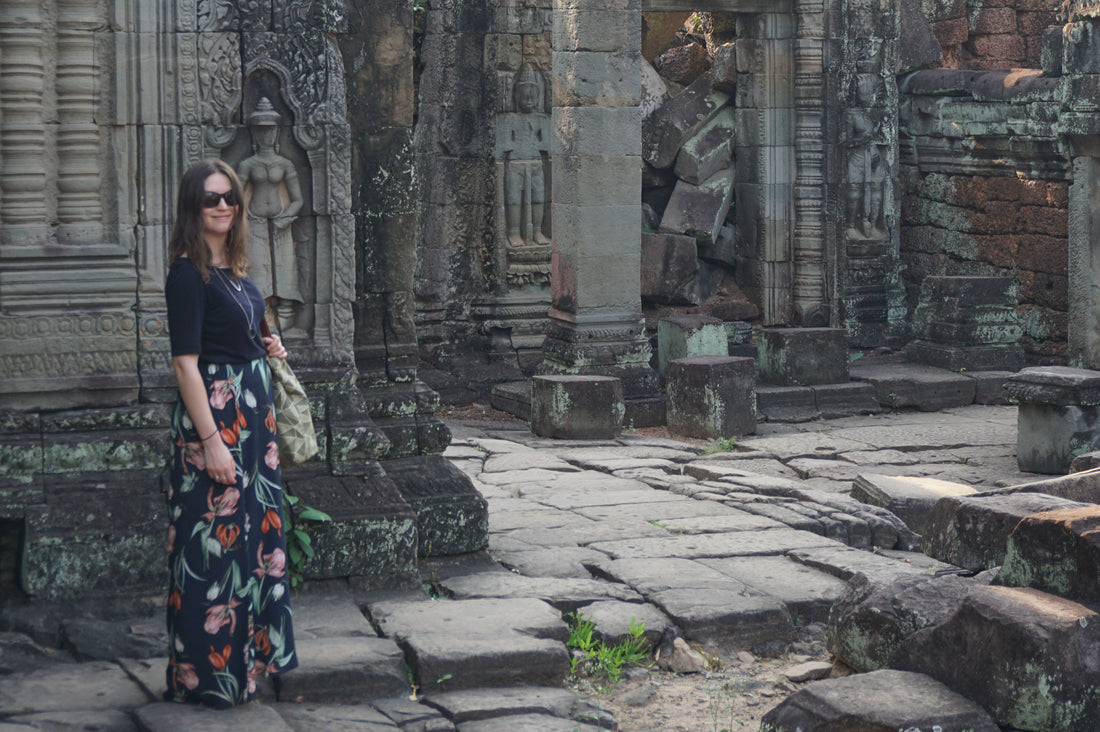One of my goals for 2019 is to be more intentional about how I travel. As Operations Manager at Fair Anita, I fly to New York for several trade shows every year. This year, I’ve had the opportunity to go on not one but two artisan visits, with a third happening in a few weeks. Coming from Minnesota, which is one of the cleanest states in the US, it’s overwhelming to go to cities covered in trash. I’m often researching ways to be more sustainable in how I travel to put less of a burden on the environment. Here are my tips for traveling responsibly:
- Use reusable everything. Ditch plastic water bottles and invest in an insulated water bottle. Insulated water bottles are great because they keep hot drinks hot and cold drinks cold for a long time! If traveling in areas where your access to clean water is difficult, there are a couple of great filtered water bottles on the market. Get a set of bamboo cutlery - bonus points if it comes with a reusable stainless steel straw. I carry my set with me at all times because you never know when you’re going to need it. Bring along a cloth bag that you can use as a shopping bag.
- Stay in one place. Rather than trying to cover a broad territory, try staying in one place and getting to know the area. This will allow you to walk, bike, and use public transportation everywhere you go. We’re headed to visit artisans in Peru in May. We’ll fly into Lima and then take an 8-hour bus to Chimbote where we’ll spend two weeks working with our artisan partners on new designs.
- Opt for an Airbnb or a eco-hostel over a hotel. I’ve had nothing but great experiences by staying at Airbnbs and eco-hostels. What I love about traveling this way is that it allows you to get to know the locals more than if you stay at a hotel. If you’re traveling on a budget, it’s often less expensive than staying at a hotel. You’ll also have access to a kitchen, so you can buy groceries at the local market and then cook at home, which will also reduce your costs.
- Research ahead of time and commit to supporting local social enterprises in the area. Last March I had the opportunity to spend a week in Hanoi. While I was there I spent a lot of time shopping at different fair trade and locally-made shops, ensuring that the gifts I bought were made by fairly paid adults. I ate at a social enterprise that trains underserved Vietnamese youth by training them in the restaurant industry. I got a massage from a social enterprise that employs people who are blind. So many massage parlours across Southeast Asia are fronts to traffick women, so it was especially important to me to not support that industry.
What are your top tips for sustainable travel?
Follow along on our adventures on instagram: @fair.anita

